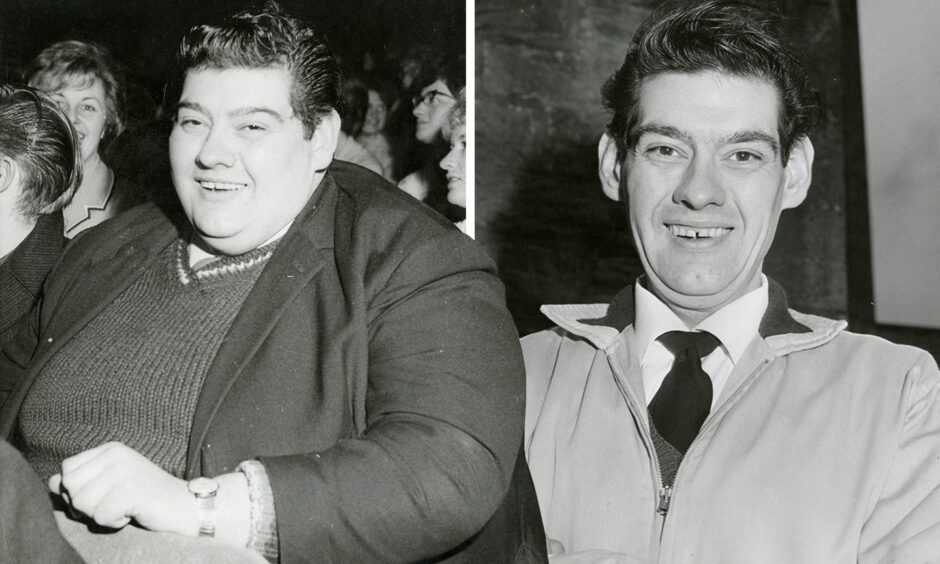
Tayport man Angus Barbieri tipped the scales at more than 32 stone when he decided it was time to lose weight.
He did.
Angus ate his last fish supper and shed 20 stone over a 382-day period from 1965.
He set a world record that survives to this day.
He ate nothing at all, and survived on a diet of tea, coffee, water and soda water.
And became famous across the globe.
Agostino – plain old Angus in Tayport – was born in 1939.
He was a brother to Caroline and Sheila.
His Italian father, Joe, became a household name when he opened a fish and chip shop on Nelson Street in 1927, after moving to Tayport with his wife, Erminda.
A chip shop tea was a staple takeaway treat on a Friday and Saturday and huge queues would snake down the street.
Angus worked in the fish and chip shop after leaving school and became a well-known face behind the fryer.
Opening floodgates at Wembley
Angus supported Dundee FC and Scotland and travelled to Wembley in April 1961.
He would see England inflict the worst defeat in the history of Scottish international football.
England won 9-3 and Angus inadvertently helped hundreds of ticketless Scotland fans gatecrash the Twin Towers because he was just too big to get through the turnstiles.
Gordon Stewart from Carnoustie was a secondary pupil in Tayport in 1961 and was taken on the trip to Wembley by his father with the local Dundee FC supporters’ club.
“We were regulars at the Barbieri’s chip shop, so I knew Angus,” said Gordon.
“Our coach was a regular Alexander’s service bus, but the journey was a nightmare as this was undertaken before all the motorways were opened.
“Angus joined us on this trip.
“In those days, of course, it was a regular habit to consume beer on board the bus.
Needless to say, it was a very quiet return home, apart from the much-needed pushing and pulling to get Angus off and on the bus.”
Gordon Stewart
“There was quite a system undertaken to get Angus off and on the bus for rest breaks, which involved several guys pushing and pulling to assist him.
“The fun part of the trip was getting him into Wembley Stadium.
“A very large group of London’s police force was required to form a barrier around Angus to escort him through a large gate, as he could not fit through turnstiles.
Fifer had to be ‘pushed and pulled on and off bus’
“I can tell you, it was a real bonus for the Jocks who had no tickets, as they were able to scramble over the police lines to gain free access.
“To top the trip off, Scotland went on to concede nine goals.
“Needless to say, it was a very quiet return home, apart from the much-needed pushing and pulling to get Angus off and on the bus.”
Angus was 26 and living in Maitland Street in Tayport when he presented himself for weight loss treatment at Maryfield Hospital in Dundee on June 14 1965.
He was described as a “grossly obese young man”, something he wanted to change.
He was 456lbs and told hospital staff he was ready to cut out food altogether.
Angus Barbieri had decided enough was enough
Initially there was no intention of making his fast a long one.
But Angus insisted on continuing because “he adapted so well and was eager to reach his ideal weight”.
At first he was treated in hospital and given vitamin supplements daily but for the greater part of the 382-day fast he was allowed home to Tayport.
Angus quit his job at the fish and chip shop to avoid breaking his strict diet and attended regularly at Maryfield Hospital as an out-patient for check-up.
He fasted on.
And on.
Urine collections were made periodically and blood samples once a fortnight.
Angus was also given potassium supplements from day 93 to day 162 of the fast.
No faecal collections were made but Angus went “37 to 48 days between stools”.
His blood glucose concentrations decreased systematically but despite the hypoglycaemia he remained “symptom-free, felt well and walked about normally”.
‘A bit full’ after breaking his fast
Weight loss was “steady and sustained”.
The rate of loss averaged three quarters of a pound per day.
He was given sodium supplements from day 345 to day 355 of the fast and occasionally consumed small amounts of milk or sugar with the tea and coffee.
Angus finally broke his fast at 10am on July 11 1966 – when he reached his ideal weight – with a breakfast of one boiled egg, bread with butter, and a cup of coffee.
He was 180lbs and made headlines worldwide.
One effect of his fast was he had lost all craving for food.
But all went well.
“I have forgotten what food tastes like,” he said.
“It went down okay.
“I feel a bit full but I thoroughly enjoyed it.”
The photograph of Angus being served his first meal in 382 days at Maryfield Hospital by staff nurse Bill Irving made the front page of the Evening Telegraph.
The newspaper said the “drastic dieting has paid off for Angus”.
“After a year’s starvation, he has brought his weight down by 20 stone,” it read.
“He is now a mere 12st 11¼ lb and when he tries on his old clothes another two people could get in beside him.
Fifer Angus celebrated with Spain holiday
“Angus’s voluntary weight reduction is regarded as one of the most remarkable cases ever by the consultants at Maryfield.
“Usually, patients have to stay in hospital, but Angus has spent a lot of time at home, where even there he has managed to resist the temptation to eat.”
Angus decided to show off his new look in the sunshine.
He went on holiday to Spain for a three-week holiday after losing the weight.
He was the subject of a study at the University of Dundee that was published in March 1973 to examine the effects that long-term fasting had on his body
Five years after beginning to eat again, he was 14 stone after gaining 16lbs and the study concluded that “prolonged fasting in this patient had no ill-effects”.
Guinness Book of Records
Angus was recognised by the Guinness Book of Records in 1971 with his extended fast noted as the longest a person had gone without solid food.
However, they no longer endorse or support any records related to fasting, due to concerns about encouraging unsafe behaviour given the dangers.
After his weight loss he moved to Warwick.
He got married to Mary and the couple had two children.
Tragically, he died at the young age of 51 in September 1990 after a short illness.
He was brought home and was buried at Tayport Cemetery.
His father, Joe, briefly outlived his beloved son and died at the age of 94.
It was a tragic footnote to an incredible story of human endurance.
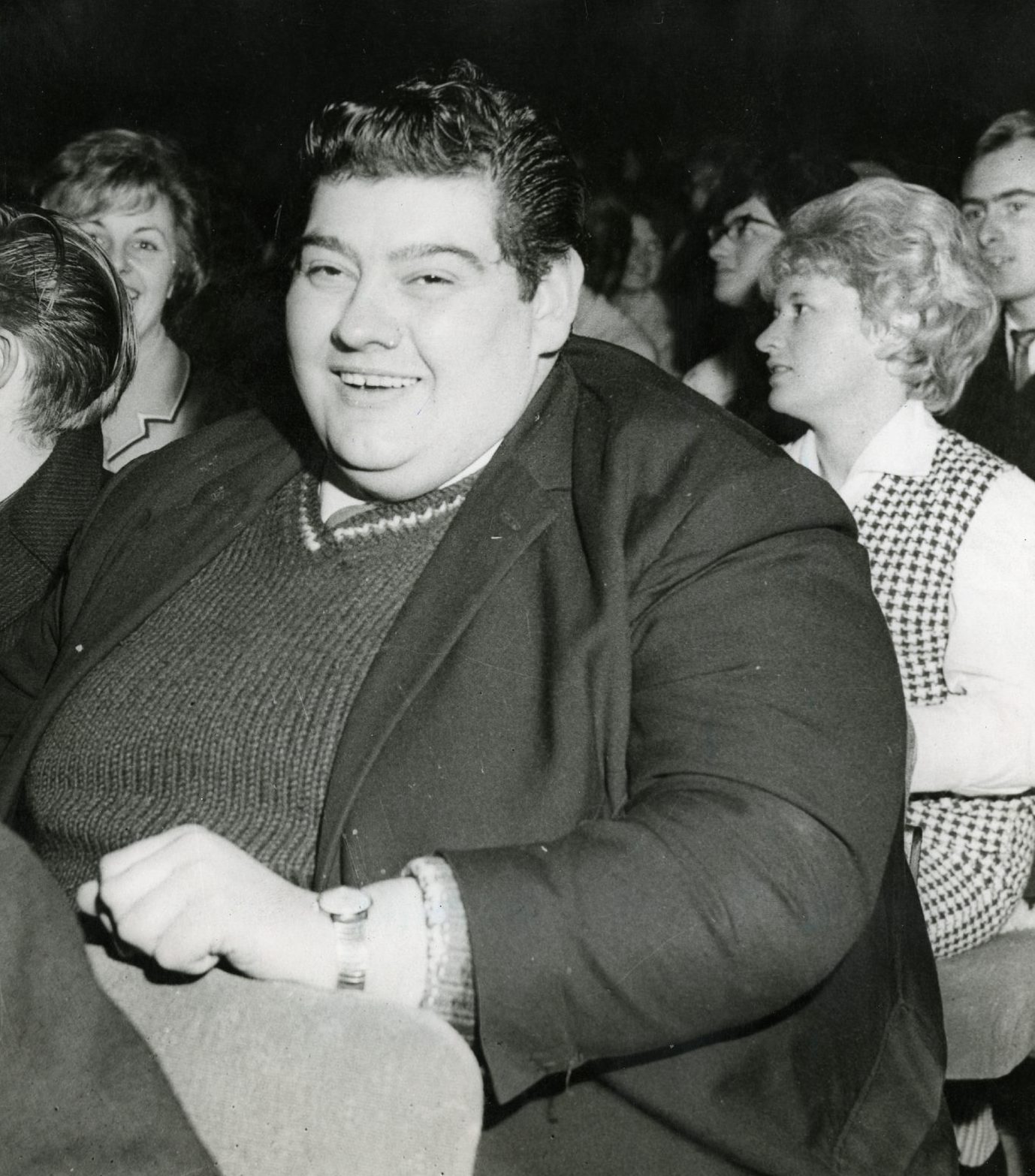
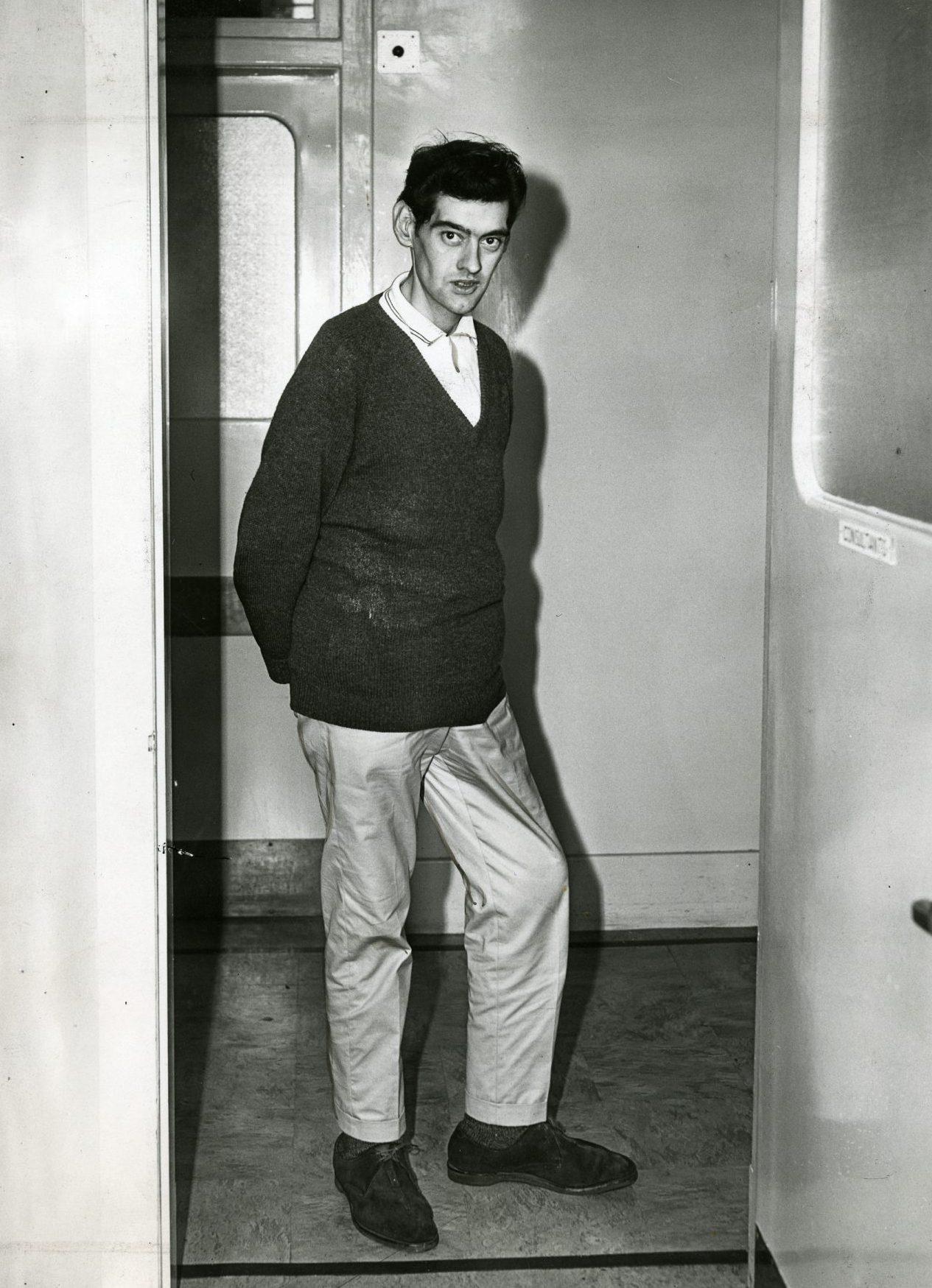
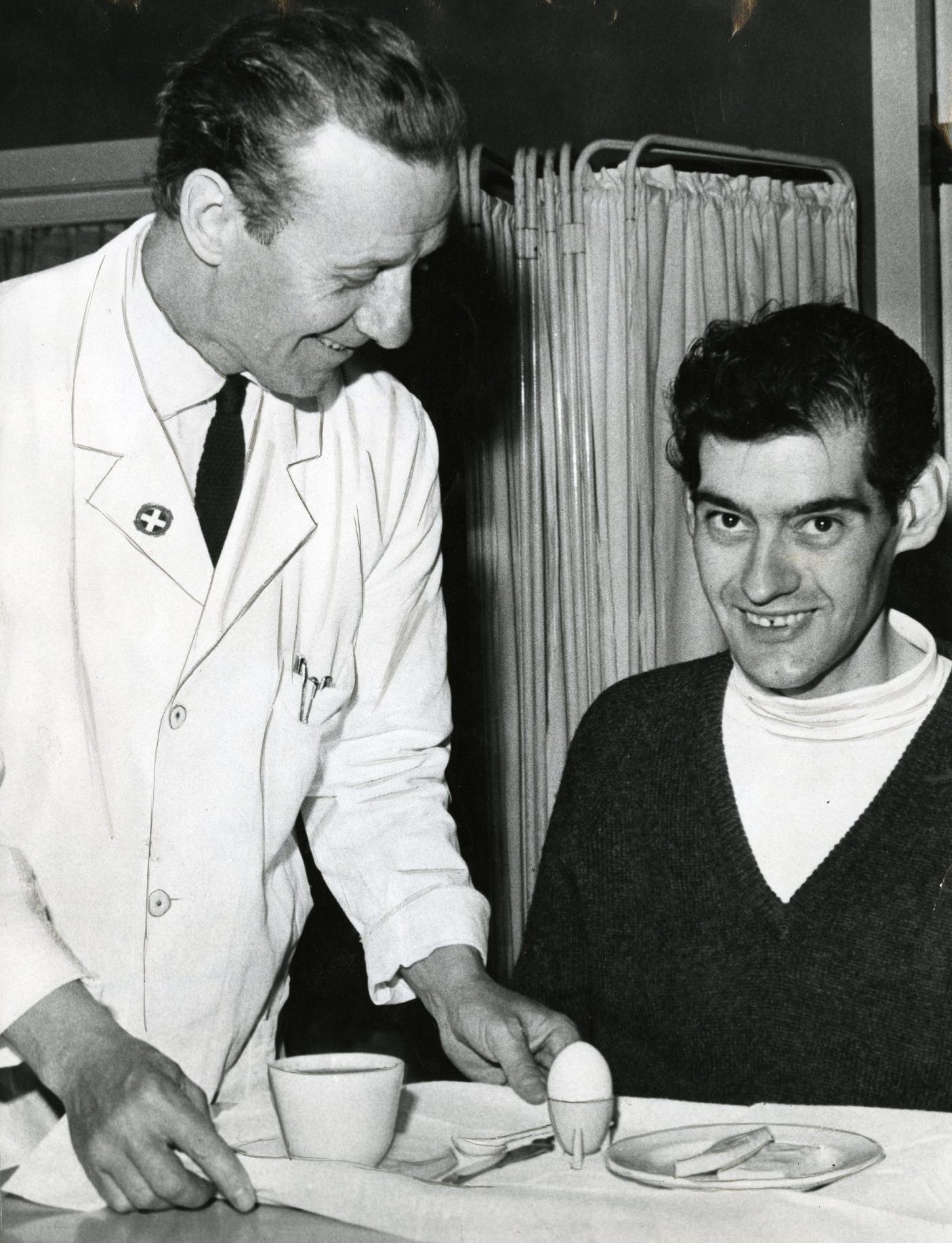
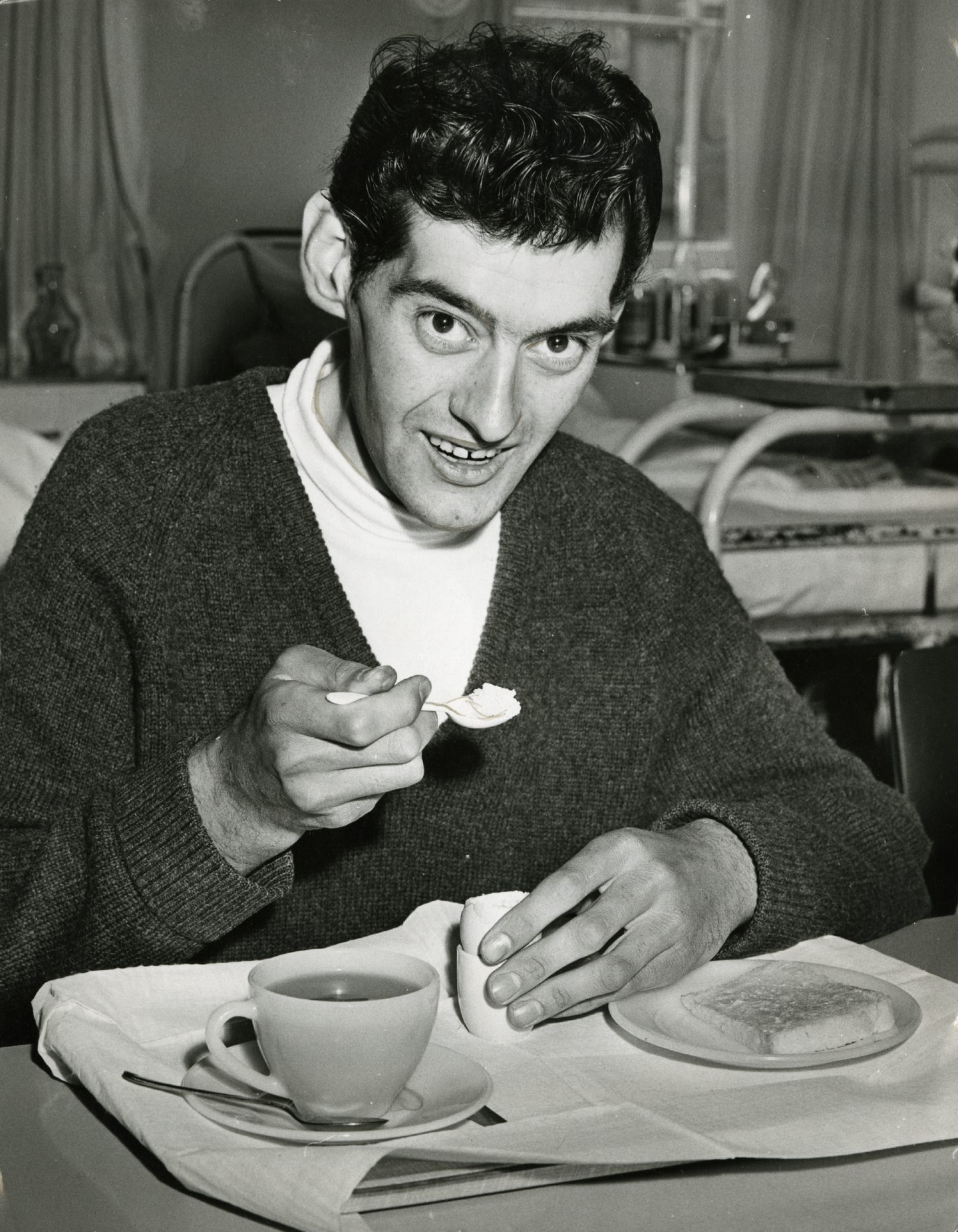
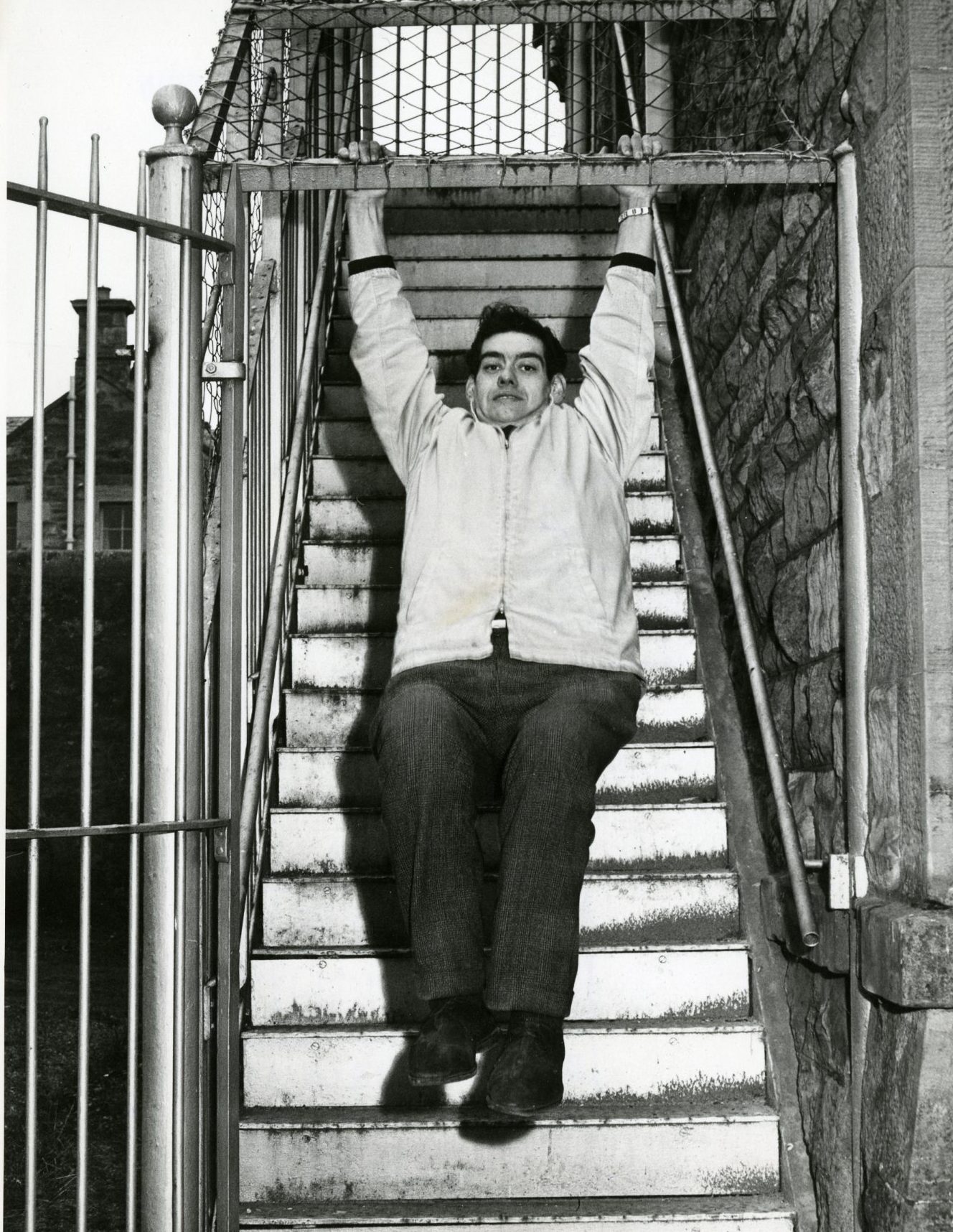
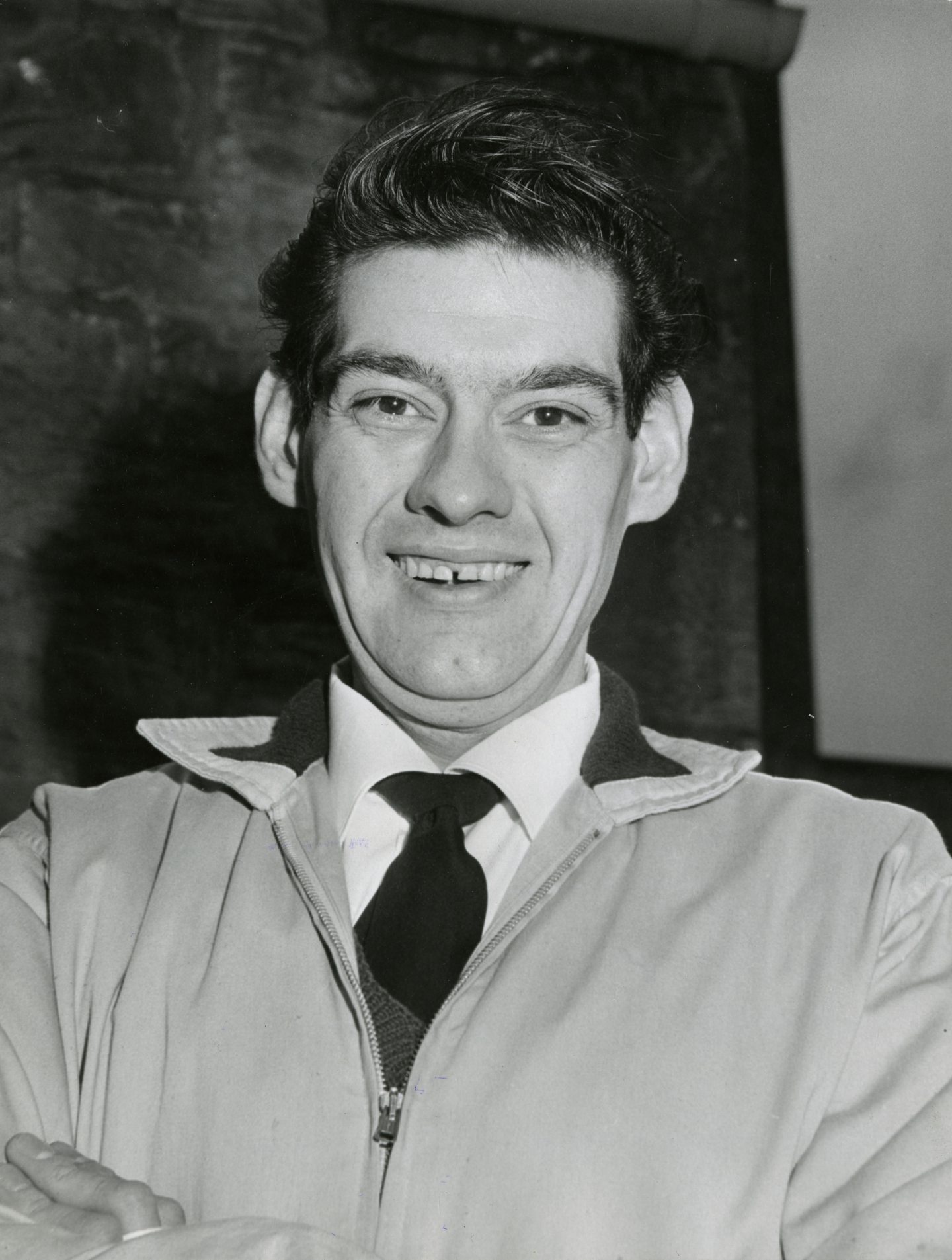
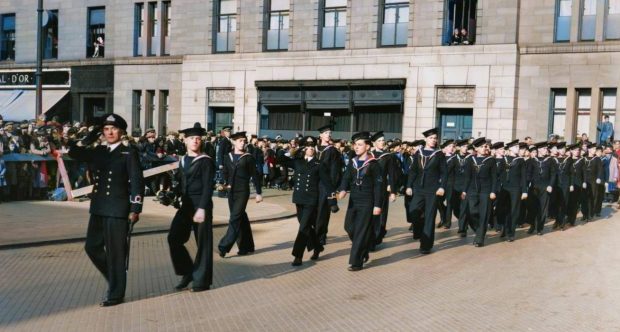
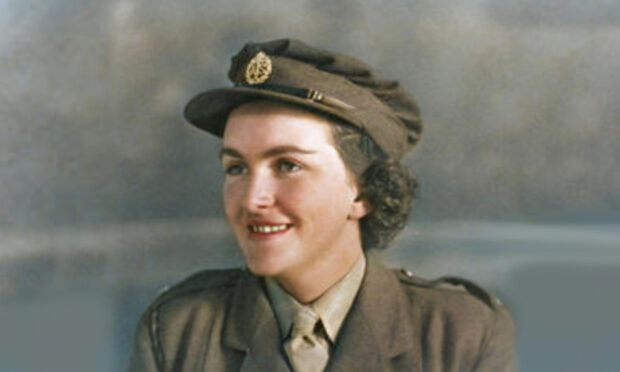


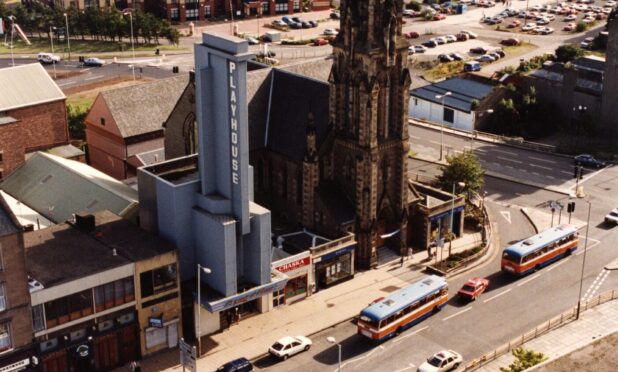
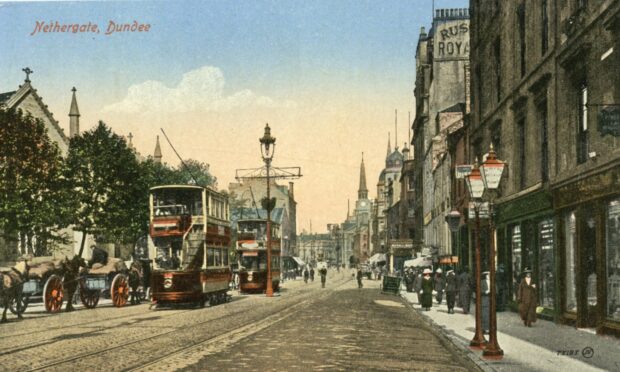




Conversation